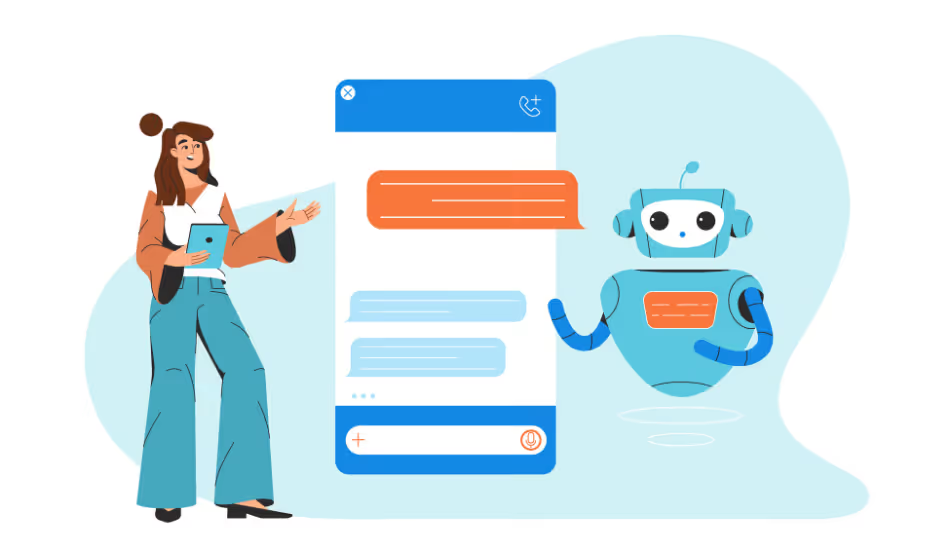
In today’s fast-paced digital economy, customers expect instant, accurate, and 24/7 support. Meeting these expectations manually can be both costly and unsustainable. This is where AI for customer service steps in, transforming traditional support into a smarter, faster, and more responsive experience.
From answering routine queries to analysing customer sentiment, artificial intelligence in customer service is making a profound impact on how businesses engage with their users.
The Rise of AI in Customer Support
As customer demands have evolved, so has the technology that supports them. Companies are now integrating AI for customer support to automate tasks, reduce resolution times, and personalise interactions. AI-powered tools can operate around the clock, delivering consistent assistance without the need for human intervention in many cases.
By using artificial intelligence in customer support, businesses can reduce operational costs, improve service quality, and increase customer satisfaction, all at scale.
Key Use Cases of AI in Customer Support
Here’s how AI and customer service work together in practice:
- Chatbots and Virtual Assistants
One of the most visible applications of AI for customer service is the use of chatbots. These tools can handle routine questions like order tracking, account resets, and FAQs with remarkable speed. AI chatbots, in contrast to human help representatives, are always available and don't require breaks.
Advanced virtual assistants also use natural language processing (NLP) to understand and respond to queries more accurately, creating a human-like interaction experience. - Automated Ticket Routing
When customers submit issues, AI in customer support can categorise, prioritise, and route them to the appropriate team or agent automatically. This eliminates delays and ensures issues are resolved efficiently. - Sentiment Analysis and Emotion Detection
Artificial intelligence and customer service go hand in hand when it comes to understanding tone and emotion. AI tools analyse language patterns and emotional cues in messages to detect frustration, urgency, or satisfaction. This insight allows businesses to prioritise unhappy customers or escalate sensitive issues. - Self-Service Knowledge Bases
AI enhances self-service options by suggesting relevant articles or solutions based on customer queries. It can even predict what a customer might need help with, reducing the need to contact support at all. - Personalised Support Experiences
AI provides personalised responses by analysing previous encounters, preferences, and behaviour. With this intelligence, businesses can offer personalised solutions, improving both efficiency and customer satisfaction.
Benefits of AI in Customer Support
The influence of AI for customer support brings several business advantages:
- 24/7 Availability: Support is available to clients day or night.
- Faster Response Times: Instant replies reduce wait time and increase satisfaction.
- Scalability: AI systems can handle thousands of interactions at once.
- Cost-effectiveness: Minimises the requirement for a sizable customer service team.
- Data-Driven Insights: Provides valuable insights into customer behavior and support trends.
Is AI Replacing Human Support?
While artificial intelligence customer care is powerful, it’s not a complete replacement for human agents. Complex, emotional, or nuanced issues still require human empathy and problem-solving.
Instead, AI acts as a strong first line of defense, handling the repetitive work and freeing human agents to focus on high-priority or complex cases. In this way, AI and customer service teams work in tandem.
The Future of AI and Customer Service
The future of AI in customer support lies in deeper integration and even more intelligent automation. As machine learning models become more sophisticated, we can expect support systems that anticipate customer needs before they even reach out.
Voice recognition, multilingual support, and proactive service based on predictive analytics are just a few innovations already shaping the next phase of AI for customer service.
Conclusion
Artificial intelligence in customer service is no longer just a trend, it’s a fundamental shift in how businesses support and engage with their customers. Whether it’s through chatbots, intelligent routing, or personalised support, AI in customer support is helping businesses stay efficient, competitive, and customer-focused.
For companies looking to scale their service operations while maintaining a high-quality experience, embracing AI and customer service technologies isn’t just an option, it’s a necessity.

